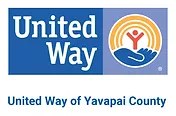
The economic impact of nonprofits is often overlooked. People see charities as helpers or community builders—and they are—but they're also a real part of our economy.
Nonprofits create jobs, bring money into local communities, and reduce pressure on public systems. In places like Yavapai County, they're a quiet but steady engine supporting everything from families to small businesses.
While the headlines often focus on big companies, nonprofits keep communities moving, too.
What Is the Economic Impact of a Nonprofit Organization?
When people think of economic impact, they usually think of profits. However, nonprofits have an effect, too, but differently.
Every dollar a nonprofit receives goes to staff, supplies, office space, community programs, local contractors, and more. That spending moves through the economy just like any business.
Economists break this down into:
- Direct impact – jobs created by the nonprofit itself
- Indirect impact – spending at vendors, suppliers, and services
- Induced impact – spending by the nonprofit's employees in the local area
And then there's the other side—what nonprofits prevent. When someone gets housing help, they're less likely to end up in the emergency room or jail. When kids get free meals and tutoring, they're more likely to stay in school and get a job. That matters, too.
How Do Nonprofits Affect the Economy?
Nonprofits contribute to the economy in ways that often go unnoticed. But the numbers speak for themselves.
Nonprofits are a major part of the U.S. economy. They account for about 10% of all private sector jobs and employ roughly 12.8 million people across the country. That includes everyone from healthcare workers at nonprofit hospitals to staff at food banks and community centers. They comprise the third-largest employment sector, just behind retail and food service and slightly ahead of manufacturing.
Their impact goes beyond jobs. In 2023, nonprofits were responsible for over $1.4 trillion in economic activity, which equals 5.2% of the national GDP. And in 2022, they collectively paid more than $870 billion in wages.
These numbers show that nonprofits aren't just filling gaps in social services—they're keeping the economy moving in a real, measurable way.
And their budgets aren't just made up of donations. Many receive grants, run fee-for-service programs, or get funding from government partnerships. All that money gets spent locally.
Volunteers don't get a paycheck, but their time has value. According to the Independent Sector, each hour of volunteer time in Arizona is worth over $30.13. Multiply that by thousands of hours nationwide, and the impact is clear.
Nonprofits as Economic Engines in Yavapai County
Here in Yavapai County, hundreds of nonprofits serve our towns and neighborhoods.
They range from food pantries to shelters, youth programs to mental health services. And everyone of them spends money, hires staff, and boosts the local economy.
Some examples:
- Prescott Community Cupboard Food Bank doesn't just hand out groceries—they maintain a facility, coordinate logistics, and work with suppliers.
- Manzanita Outreach distributes food across the region and maintains operations that include staffing, storage, and transportation—all contributing to local economic activity.
- The Launch Pad Teen Center hires educators, rents space, and contracts with local businesses for workshops and events.
United Way of Yavapai County funds many of these partners. That means donations made through United Way end up in the hands of local nonprofits that employ real people and buy from local vendors.
More Than Dollars—Social Return on Investment
Not all impact is measured in dollars. But that doesn't mean it's invisible.
Think about the cost of letting problems go unsolved:
- A homeless family without shelter ends up in the ER or jail
- A student who drops out might need unemployment support later
- A senior without access to food gets hospitalized
Nonprofits step in early. They fill gaps. And that often prevents bigger expenses down the road.
This is what's called social return on investment (SROI). It means that for every dollar invested in a nonprofit, you often save much more in public costs.
United Way sees this across all our focus areas—education, health, and financial stability. Helping people early leads to stronger, healthier communities later. That's not just good ethics—that's smart economics.
Myths About Nonprofits and the Economy
A few common misunderstandings still get in the way.
Myth 1: Nonprofits don't contribute to the economy.
Truth: They're major employers, vendors, and service providers.
Myth 2: Nonprofits are run entirely by volunteers.
Truth: Most have full-time staff, payrolls, and HR policies like any business.
Myth 3: Nonprofits only use donations.
Truth: They receive government contracts, foundation grants, and earned income.
These aren't side projects—they're structured organizations operating with real budgets and responsibilities.
United Way's Economic Impact Through Partnerships
United Way of Yavapai County doesn't do this work alone. We focus on funding programs that strengthen communities and improve long-term outcomes.
That includes:
- Supporting local nonprofits that hire staff and build infrastructure
- Providing grants that help partners grow and serve more people
- Connecting donors and businesses to causes that make a measurable impact
Every dollar donated to United Way is used carefully, and most of it stays in our community.
That means we're not just helping people in crisis. We're also helping keep people employed, helping local nonprofits thrive, and ensuring donated dollars do real work close to home.
Support Organizations That Strengthen the Local Economy
Nonprofits aren't just a feel-good part of the community. They're an economic asset.
They raise funding, hire locally, and provide services that support families, schools, and businesses.
If you care about the health and future of Yavapai County, support the organizations that keep it moving. Volunteer, donate, share their work, or partner with them as a business or civic leader.
It all adds up—and it all makes a difference.






